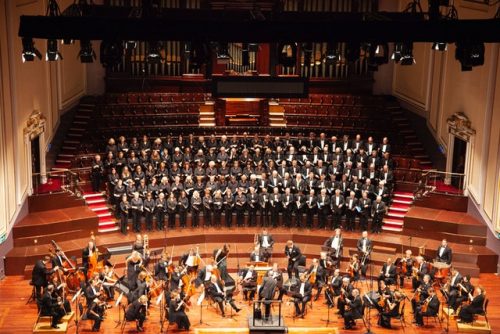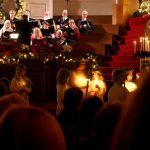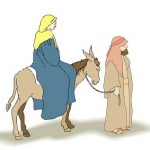Mankind was born with an inbred desire to praise and worship someone or something. We either praise and worship the one true God or we will create our own man-made idols.
Habakkuk 3:19b NIV
‘For the director of music. On my stringed instruments.’
In an earlier study, we noted that Habakkuk appeared to be involved in leading worship. Here in this verse, he refers to ‘my stringed instruments.’
INSTRUMENTS
- How does your church worship the Lord each Sunday?
- Do you sing a selection of hymns played on an organ?
- Are there hymns and songs played on an organ and or a piano?
- Perhaps you attend a more lively church with a band comprising piano, keyboard, guitars and drums etc? What instruments are used?
Some people believe the only true worship instrument is the pipe organ. But did you know that there was a huge outcry when the organ was first introduced into a church service? The Scots labelled the instrument as a “kist o’ whistles” – a derogatory name with kist meaning coffin. Many believed it was an instrument of the devil.
Today there are those who believe the guitar should not be played in church, and as for drums? Well, really!
OLD TESTAMENT MUSICAL INSTRUMENTS
Doesn’t this seem strange in the light of the fact that the Bible reveals Old Testament worshipers used a variety of musical instruments?
“Praise God with trumpets and all kinds of harps.
Praise him with tambourines and dancing, with stringed instruments and woodwinds.
Praise God with cymbals, with clashing cymbals.” (Psalms 150: 3-5 CEV)
They also used the shofar (from a ram’s horn, especially the kudu!), bells, lyres, small drums, flutes etc.
A modern-day Habakkuk would almost certainly use an electric guitar and a keyboard!
ORCHESTRA
Here in our own city of Gqeberha (formerly Port Elizabeth), from time to time the well-known South African conductor, Richard Cox, leads a service of worship called ‘Songs of Praise’. Pre-Covid, believers packed the large auditorium to join in a great time of praise and worship. A large orchestra and choir comprising choir members from local churches accompanied the singing.
I don’t believe the Lord is choosy about which instruments we use in worship. After all, he gave mankind the ability to design these numerous musical instruments. God’s main concern is the state of our hearts, whether we are truly worshipping Him or merely singing songs.
Shirley and I once attended an amazing service of worship in a rural African church where their only instrument was the Bible! The congregants danced as they sang lustily, clapping the palms of their hands on their Bibles in time to the rhythm. What a wonderful time of truly God-inspired worship that was!
JESUS AND WORSHIP
On the outskirts of the village of Sychar in Samaria, Jesus got into conversation with an adulterous woman. Jesus pinpointed that she had five previous husbands and was not married to the man she was living with. The lady tried to change the subject.
“Sir,” the woman said, “I can see that you are a prophet. Our ancestors worshiped on this mountain, but you Jews claim that the place where we must worship is in Jerusalem.”
“Woman,” Jesus replied, “believe me, a time is coming when you will worship the Father neither on this mountain nor in Jerusalem. You Samaritans worship what you do not know; we worship what we do know, for salvation is from the Jews.
Yet a time is coming and has now come when the true worshipers will worship the Father in the Spirit and in truth, for they are the kind of worshipers the Father seeks. God is spirit, and his worshipers must worship in the Spirit and in truth.” (John 4:19-24 NIV)
She attempted to enter into a debate as to the correct venue for worship. Jesus in effect said the venue is not important, it’s who you worship and how you worship that is really important – “God is spirit, and his worshipers must worship in the Spirit and in truth.”
True worship is God centred, Spirit orchestrated, and focused on the truth about Jesus.
On YouTube recently there have been several clips claiming that some of the lively songs of praise and worship sung in many of our churches are theologically inaccurate. That the songwriters are in effect teaching false doctrine which is more man centred than God-glorifying. Jesus said,”.. . .the true worshipers will worship the Father in the Spirit and in truth...”
FALSE WORSHIP
This is not really surprising in the light of the temptations Jesus received in the wilderness after his baptism by John the Baptist.
“Then Jesus was led by the Spirit into the wilderness to be tempted by the devil. After fasting forty days and forty nights, he was hungry.” (Matthew 4:1,2)
The English word ‘temptation’ comes from the Greek PETRASMOS and can also mean ‘testing.’
It was truly a time of testing for Jesus. After fasting for forty days Jesus was hungry and Satan tempted him to meet His physical need miraculously and thus prove himself to be the Son of God. Jesus replied, “It is written: ‘Man shall not live on bread alone, but on every word that comes from the mouth of God.‘” (Matthew 4:4)
In His weakened condition, Satan continued to attempt Jesus to question his own identity by taking him to the highest point of the temple – “If you are the Son of God, throw yourself down,” for surely God will send his angels to save you.” Jesus again resisted the temptation by quoting God’s Word, “It is also written: ‘Do not put the Lord your God to the test.‘” (Matthew 4:7).
A CRUCIAL TEMPTATION
But now we come to the real crux of the three temptations.
Again, the devil took him to a very high mountain and showed him all the kingdoms of the world and their splendor. “All this I will give you,” he said, “if you will bow down and worship me.“
Jesus said to him, “Away from me, Satan! For it is written: ‘Worship the Lord your God, and serve him only.‘” (Matthew 4:8-10)
Satan hates seeing Christians worshipping the one true God through Jesus Christ the Son. He will do all he can to undermine such worship. Even if it involves getting us to sing words which don’t truly praise and glorify God. We need to be very careful that we are worshipping the Lord our God and not allowing Satan to distract us.
HEARTFELT WORSHIP
David, himself a musician, had a lot to say about our praise and worship of God. “I will praise the LORD God with a song and a thankful heart.” (Psalm 69:30 CEV)
- Is your worship truly heartfelt?
- Does your worship flow from your heart or do you simply sing songs?
Paul’s advice to believers is, “When you meet together, sing psalms, hymns, and spiritual songs, as you praise the Lord with all your heart.” ( Ephesians 5:19 CEV)
Ask the Holy Spirit to show you whether you are offering true worship and to teach you how to present God with true worship through Christ His Son.
Then join in with this congregation as they sing a true song of worship. See what instruments you can identify.
P.S.
If you haven’t yet read the background to the prophecy, please do. It will benefit you throughout this series of studies.


















